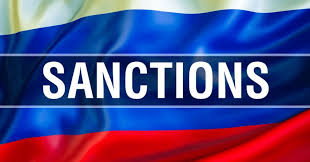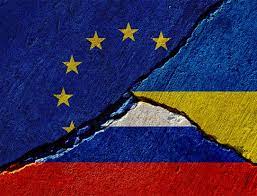Preparing for New Russia Sanctions Program: Are You Ready?

Jessica Sanderson, Partner at The Volkov Law Group, joins us for a blog posting on how to prepare for possible Russia sanctions in the event Russia invades the Ukraine. Jessica can be reached at [email protected].
Compliance Professionals: As the Ukraine braces for a possible Russian incursion, are you bracing for the impact of economic sanctions against Russia?
In this article we offer suggestions to help your company prepare to respond quickly and avoid liability for sanctions violations.
The United States government is developing a comprehensive set of economic sanctions that it would seek to implement in response to any attempt by Russia to disrupt or invade the Ukraine. Numerous U.S. officials have made public statements promising an aggressive set of sanctions to respond to Russia activism in Ukraine. President Biden, speaking to reporters on Tuesday in Washington, said there would be “enormous consequences worldwide” for Russian President Vladimir Putin if Russia invades Ukraine.
The U.S. has sought to coordinate its response with European allies, for example, prohibiting or restricting Russia financial transactions in the global SWIFT payment system, which would have a significant impact on Russia’s ability to conduct business globally. For years, Russia and China have promoted an alternative to the SWIFT system as a way to prevent severe sanctions from Western governments. These efforts are ongoing and denial of access to the SWIFT system would be a major step for the United States and Europe to take in response to Ukraine aggression.
But the U.S. has many weapons in its economic sanctions’ arsenal that it may unilaterally impose and enforce, and although those sanctions would target Russia, you and your company may feel the pain in the U.S. and other countries. While it is not clear exactly what form a new sanctions program would take, the U.S. could:
- Impose a comprehensive or near-complete embargo of Russia, like the embargoes imposed against Cuba, Iran, Syria, and North Korea. This would ban nearly all U.S. trade with and investment in Russia.
- Impose additional sectoral sanctions (e.g., on Russia’s energy or financial sectors).
- Prohibit exports of certain items or technology to Russia, including various microelectronics products, equipment, software, or technology with a focus on artificial intelligence, quantum computing, and aerospace, without a specific license or authorization from the Department of State or Commerce (under the ITAR or EAR).
- Designate Russian entities under the Foreign Direct Product Rule (15 C.F.R. § 736.2(b)(3)). For example, the U.S. could block a foreign company that made a laptop in a foreign country from selling that laptop in Russia if the laptop incorporates any U.S. chips (this was used to target China’s Huawei).
- Add specific Russian entities (like Rosneft and Gazprom) or individuals (including Putin’s close friends and family and prominent Russian businesspeople and politicians) to OFAC’s Specially Designated Nationals and Blocked Persons List (“SDN”), meaning that their assets would be blocked and “U.S. persons” would generally be prohibited from dealing with them. U.S. politicians have suggested that these sanctions could include individuals and entities involved in Germany and Europe’s Nord Stream 2 pipeline, which could cut Germany and European countries from critical natural gas supplies. Note that foreign subsidiaries of U.S. companies would be considered U.S. persons prohibited from dealing with SDNs.
- Prohibit Russian entities from accessing the U.S. financial system/using U.S. dollars and/or sanctioning foreign banks that conduct transactions with sanctioned Russian entities.
- Prohibit U.S. persons or entities from investing in Russian companies, requiring divestment, and/or sanctioning foreign entities that buy Russian government bonds.
- Impose “secondary sanctions” on entities or individuals that conduct certain transactions with Russia (like the secondary sanctions imposed against companies that do business with Iran).
- Freeze Russian assets located in the U.S. (such as Russian funds located in U.S. banks or Russian-owned goods in U.S. warehouses).
- Ban U.S. financial assistance to Russian entities.
- Withhold U.S. aid to any organizations that assist Russia.
- Prohibit imports and/or impose high tariffs on specific Russian imports.
- U.S. State-Level Sanctions: States may enact laws that prohibit business with, or require divestment of shares in, firms that conduct certain transactions with Russia (numerous states have adopted laws, regulations, and policies to divest from, or preclude state government business with, foreign companies that conduct certain transactions with Iran; the same types of laws could be enacted targeting Russia).

Are you prepared? For example, what will you do if a party with whom you conduct business is added to the SDN list? “U.S. persons” (which includes companies located or incorporated in the U.S. and their foreign subsidiaries) must be prepared to react quickly to avoid liability. Sanctions might be introduced with very little notice and compliance is expected immediately. If, for example, an individual or entity is added to the SDN list, U.S. persons must cease all business with them immediately. And OFAC may impose civil penalties for sanctions violations based on “strict liability,” meaning that a person subject to U.S. jurisdiction may be held civilly liable even if it did not know or have reason to know it was engaging in a transaction with a person that is prohibited under sanctions laws and regulations administered by OFAC. There is no intent requirement for civil liability.
So what can you do now to prepare?
- First and foremost, ascertain your exposure and consider how some or all of these actions would impact your business. Do you export goods or technology to Russia and/or employ Russian nationals (an export could include sharing technology with a Russian national residing in the U.S.)? Are you a financial institution? Are you dependent on Russian suppliers? Do you or your foreign subsidiaries have a large customer base, third-party distribution network, sales agent, branch office, or joint venture in Russia?
- Check your sanctions screening policies and procedures and check your customers and business partners in real time against global sanctions lists. Most organizations screen their customers, vendors, suppliers, intermediaries, and other counterparties against U.S. and/or international sanctions lists at a minimum prior to engagement. You also should be frequently monitoring those parties. If you use sanctions screening software and you haven’t done so already, now is a good time to ensure that your sanctions screening software is up to date and frequently refreshed. Ideally, you will receive daily alerts if one of your business partners is added to a sanctions list, and don’t set those alerts aside to resolve at a later date during this time of escalating tension. If you are manually screening your counterparties (e.g., using the Consolidated Screening List (CSL) search engine), make sure you are searching your Russian-affiliated counterparties on a daily basis.
- Identify all of your contracts with Russian entities or individuals and review your contracts for compliance with law clauses, notice clauses, and termination provisions. You should be prepared to terminate transactions immediately if necessary. Be mindful of continuing obligations at law (perhaps international law or maritime law) that may not automatically cease upon the termination of contracts.
- KYC: If you are dealing with an entity, and you haven’t done so already, identify all beneficial owners. Under OFAC policy, if an entity is owned 50% or more by one or more SDN’s, that entity is also treated as if it is on the SDN List and subject to blocking and asset freezes, even if the entity is not itself specifically named on the SDN list. You will want to know ASAP if an entity you are dealing with is owned 50% or more in the aggregate by any Russian individuals. Beware of off-shore holding companies, intermediary companies, trusts, or other complex or opaque ownership structures.
- Identify what, if any, items, or technology you are exporting to Russia and any transactions with Russian entities that have ongoing or continuing obligations. Consider whether you will need to apply for a license from OFAC (to continue to deal with a sanctioned party) or from the Department of State or Commerce (to export otherwise controlled items or technology to Russian end-users).
- Take a look at your supply chain to avoid business interruption. If you are reliant on any supplies or services from Russian entities or individuals, now might be a good time to consider alternative sources and perhaps even solicit bids.
- Identify whether you have any outstanding debts from Russian entities or individuals, and, if so, promptly purse collection activities. It will become very difficult to collect payment from Russian entities after sanctions are imposed.

- Identify any procurement or manufacturing activities for goods intended for Russia and consider whether you can safely postpone or delay those activities, especially if you are dealing with specially designed or non-fungible goods (without breaching any contracts or risking failure to meet deadlines). We have clients who, for example, procured and manufactured goods intended for entities later added to the SDN list who are now stuck holding the goods and unable to collect payment for the goods or warehousing fees.
These are just some of our suggestions to get ahead of the issue and prepare for the worst. And of course, we cannot and do not offer this as legal advice, but we would be happy to consult with you on these topics upon request.















1 Response
[…] Source link […]